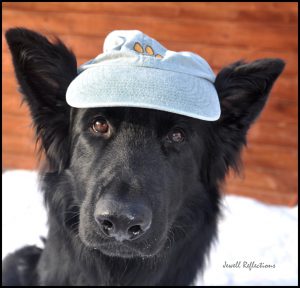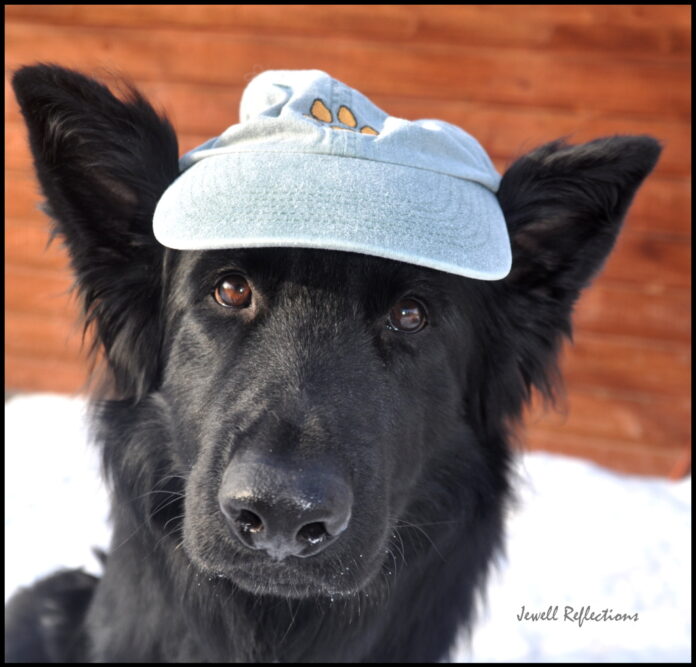BY FRAN JEWELL

The media and pet suppliers, the dog training community and dog care specialists have begun to refer to dogs as “fur babies” or “fur children.” Not a day goes by that we don’t see dogs in clothes that make them look like little children.
I posted a photo on the Positive Puppy Facebook page that had a Weimaraner with painted toenails and a bracelet on her leg. A Weimaraner is a hunting dog with huge energy and the need to run and hunt. In order to paint her nails, her “guardians” had allowed the nails to grow especially long. As a result, this dog will end up with health issues with her feet that could result in pain the rest of her life and render her unable to run. For what purpose? So her “guardians” can enjoy their dog looking like a human “princess.”
Anthropomorphism is incredibly dangerous, not only to a dog’s physical health but also to its mental health.
Many of the aggression and severe separation anxiety cases I work with are a result of dogs being treated like fur babies, or beings that have feelings like people, without any rules or structure. I love my dogs as much if not more than anyone on the planet, but I love them enough to respect that they are dogs and of a different species. I love that they are dogs, not humans.
I am not here to argue that dogs don’t have feelings. They do, but they do not have feelings the way we humans do and they do not respond the way we humans do to certain situations.
So, how do we honor our dogs? First, we do some research to find out what our dog was bred to do. Even mixed-breed dogs have an innate purpose. Humans originally selected wolves that were the most social and trainable in order to help primitive man with survival. Over time, humans domesticated those wolves into dogs.
Dogs were originally intended to help herd livestock, hunt—in order to help humans find food—pull carts, protect families, kill vermin in the barn, and yes, even be our companions. But dogs did not lose their day jobs to sit at home and sleep on the back of the sofa. Our first job should be to understand the ancestry of our dogs, which will help us to understand who they are today.
In many ways, dogs have taken the place of human companions. Nowadays, our families may live across the country instead of across town. Even in high-rise apartments, many of us don’t know our neighbors anymore. A huge part of the time, once we get to know our neighbor, they move away to take a job in Alaska or India. We look for those warm fuzzy dogs to assuage our loneliness, and put enormous pressure on our beloved dog to be only a companion instead of a dog intended to work to help people.
How many times have you heard that a dog loves to obey? What we as humans perceive as work is usually fun for a dog and helps the dog maintain a healthy body and mind. Dogs love direction and are mentally and physically healthier when they are given direction. Honor your dog for what it truly is and you will see amazing things in your relationship with it.
Fran Jewell is an Idaho Press Club award-winning columnist, IAABC-certified dog behavior consultant, NADOI-certified instructor #1096 and the owner of Positive Puppy Dog Training, LLC, in Sun Valley. For more information, visit positivepuppy.com or call (208) 578-1565.

